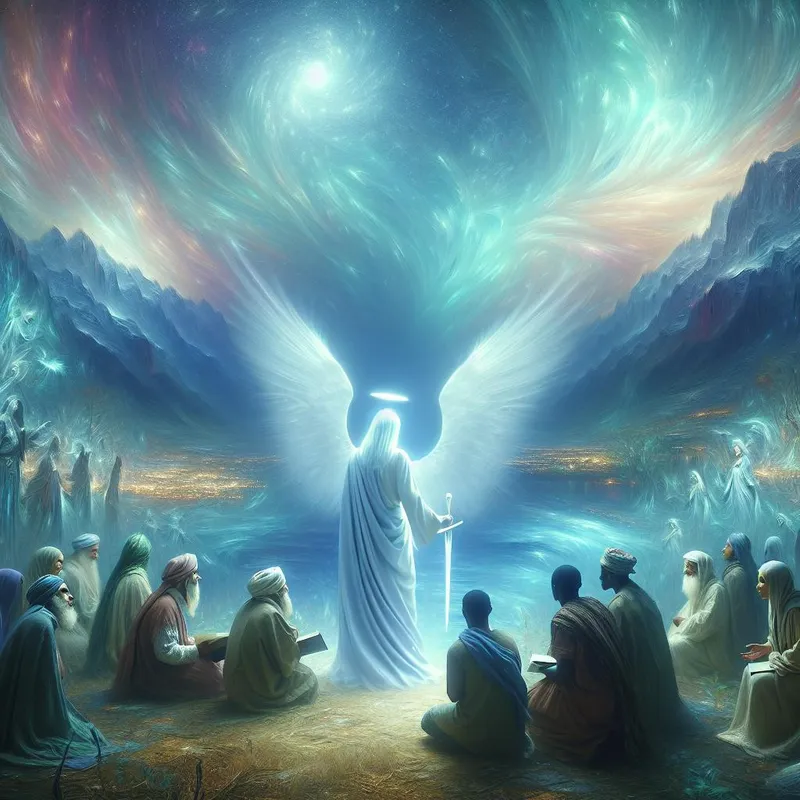
"Divine Command: Understanding God's Order on Killing"
Posted on 21 May 2024
The Value of Human Life
According to the Bible, God places immense value on human life. In Genesis 1:27, we read that God created human beings in His own image, emphasizing the inherent worth and dignity of every person. This sentiment is echoed in Genesis 9:5-6, where God tells Noah that He will demand an accounting for the life of another human being because they are made in His image. Furthermore, the Ten Commandments, given by God to His people in Exodus 20:1-21, include the clear prohibition against murder.
God's view on the sanctity of human life is reaffirmed throughout the New Testament as well. Verses such as Matthew 5:21, Romans 13:9, 1 Timothy 1:9, 1 John 3:15, and James 2:11-12 all emphasize the sacredness of human life. These passages make it clear that God values every human life and prohibits the intentional taking of a life without just cause.
God's Orders to Kill in the Old Testament
However, a question arises when considering the instances in which God ordered or carried out the killing of many people in the Old Testament. Examples include the Great Flood (Genesis 6:1-8:22), the destruction of Sodom and Gomorrah (Genesis 19:1-29), and the drowning of the Egyptian army at sea (Exodus 14:26-31). In addition, God instructed Israel to execute everyone in Jericho except for Rahab and her family (Joshua 6:17, 21).
This raises a valid concern: If God values human life so highly, why would He order or carry out such actions? The answer lies in understanding God's unique authority and role as both Creator and Judge.
God as Creator and Judge
The Bible affirms that God is the Creator of the universe and the Author of life (Acts 3:15). As such, He alone possesses the right and authority to give life and to take it away (Genesis 2:7; Job 1:21; 12:10; Acts 3:15; 17:25). God is also the ultimate Judge of sin (Isaiah 13:11; 26:21; Psalm 99:8; Proverbs 11:21; Amos 3:14; Zephaniah 1:12; Romans 2:12; 1 Thessalonians 4:6).
When individuals commit evil acts, God has the right and authority to carry out His punishment. Sometimes, the appropriate punishment for a crime is death (Genesis 2:17; Leviticus 20:1-17; Proverbs 11:19; Romans 1:32; 1 Corinthians 11:29-30). The Bible clearly states that "the wages of sin is death" (Romans 6:23). In fact, God warned Adam and Eve that disobedience would result in death (Genesis 2:17).
Divine Punishment and God's Sovereignty
In several instances in the Old Testament, God's orders to kill or carry out destruction were acts of divine punishment. For example, the Great Flood was a consequence of widespread wickedness and corruption among humanity (Genesis 6:1-4). The flood served as God's judgment on a sinful world, allowing Him to reassert His lordship and give humanity a fresh start.
Similarly, in the case of Jericho, God used Israel as the means to carry out His punishment against a wicked nation. It is important to note that God specifically instructed Israel to execute everyone in Jericho except for Rahab and her family. The destruction of the Canaanites was not an act of genocide but a divine punishment for their detestable practices and idolatry (Deuteronomy 12:29-13:18).
Human Role in Carrying Out Justice
After the flood, God entrusted the task of carrying out His justice on earth to humans (Romans 13:4; Jeremiah 51:20). This responsibility involves the administration of justice, including the imposition of capital punishment for crimes such as murder. However, it is crucial to understand that individuals are not authorized to independently carry out justice or seek revenge. God has reserved that authority for governing powers (Romans 13:1-14).
In Mosaic Law, God prescribed the death penalty for various crimes, not just murder (Exodus 22:18-20; 35:2; Deuteronomy 21:18-21). While these regulations may seem harsh by today's standards, they served to maintain the purity and distinction of the Israelites from neighboring pagan nations. It is important to remember that these laws were fulfilled in Jesus Christ and are no longer binding legal obligations for Christians today (Matthew 5:17; John 1:17; Romans 10:4).
Why This Matters
Understanding God's role as both Creator and Judge helps us grapple with difficult questions regarding His orders to kill in the Old Testament. It highlights the seriousness of sin and rebellion against God, as well as the importance of divine justice. Recognizing these truths can deepen our understanding of God's character and His sovereignty over all creation.
Think About It
- How does the belief in God's authority as Creator and Judge affect your understanding of His orders to kill in the Old Testament?
- How can we reconcile God's commandments against murder with His orders to carry out capital punishment in certain instances?
- What does it mean for Christians today that Jesus fulfilled the law and that we are no longer under the legalistic obligations of Mosaic Law?
- How can we apply the principles of valuing human life and upholding justice in our own lives and society today?
